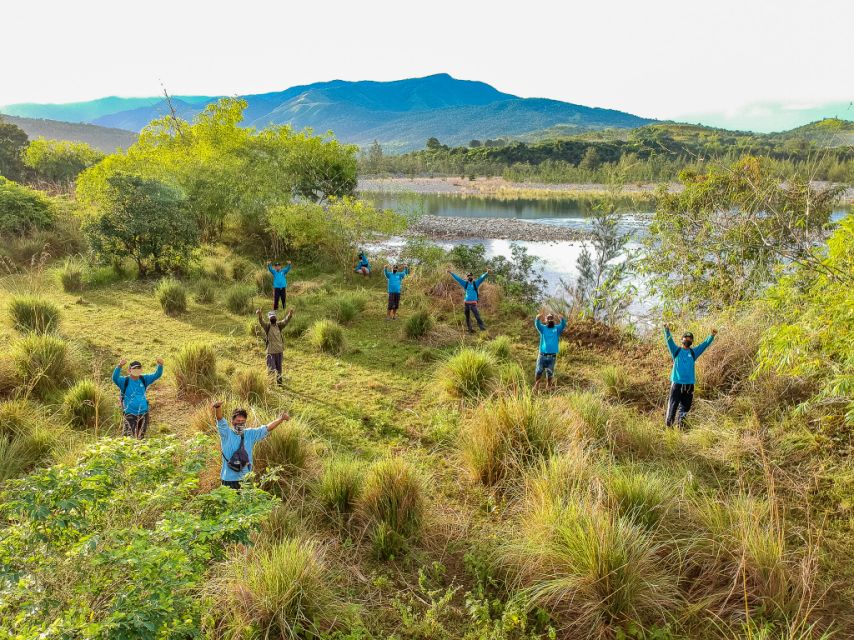Bolstering its climate action initiatives, San Miguel Corporation (SMC) power
subsidiary SMC Global Power Holdings Corp. (SMCGP) reported the successful
planting and growing of over five million new trees and mangroves from 2019 to
date, under its multi-year, nationwide forestation and carbon capture program.
The company said it is also expanding the scope of the project to reforest areas
around its new Battery Energy Storage System (BESS) facilities—the first and
largest such network in the Philippines and Southeast Asia.
SMC President and Chief Executive Officer Ramon S. Ang said that as of October
2022, SMCGP’s “Project 747” initiative has yielded a total of 5,010,116 upland and
mangrove trees, across some 1,500 hectares of land.
The project’s goal is to plant seven million trees on some 4,000 hectares of land,
in at least seven provinces. Thus far, SMCGP has planted in eight: Albay, Bataan,
Bulacan, Davao Occidental, Negros Occidental, Pangasinan, Quezon province, and
Zambales.
The list is however being expanded to cover areas where SMCGP’s battery storage
facilities are installed or are being put up. These include Albay, Bohol, Cagayan,
Cebu, Davao del Norte, Davao de Oro, Isabela, Laguna, Leyte, Misamis Oriental,
Pampanga, Pangasinan, and Tarlac. SMCGP is building a total of 31 BESS facilities
with a total capacity of 1,000 MW.
The battery facilities, which will minimize power wastage and redirect otherwise
unused capacity to remote areas, are regarded as the best and most sustainable
technical solution to the country’s power quality and reliability issues. They are
seen to balance and improve access to power nationwide.
More importantly, it will make viable use of intermittent renewable sources such
as solar and wind by efficiently storing the energy for electricity when the sun is
not shining or the wind is not blowing.
“Reforestation is one of the major sustainability priorities of the entire San Miguel
Group. While we have had many similar efforts initiated by our various
subsidiaries in the past, SMCGP has taken it to another level, planting a record 5
million trees in just under three years, with consistently high survival rates” Ang
said.
He credited SMCGP’s partner communities and people’s organizations, local
government units, and employee volunteers, with the success of the initiative so
far.
He said that to ensure high survival rates for its trees–currently at around 90% for
both upland and coastal projects–SMGP partners with local communities to
identify and plant needed indigenous tree species.
Community members are also engaged to take care of, and ensure the healthy
growth of forests, under the program’s livelihood component.
“With our continued partnership with communities and local stakeholders, we are
confident that not only will we reach our targets, but the trees we are planting
today will grow to full maturity and benefit their surrounding environment for
generations to come,” Ang said.
He added that foresting the areas around its new BESS facilities also makes sense
because the facilities themselves are a major step to strengthening the entry of
renewable energy capacities in the future.
“The major challenge of renewable power everywhere in the world is
intermittence. With renewables, the ability to generate power is always limited.
You cannot generate solar power at nighttime, or when weather conditions block
sunlight. You cannot produce wind power when there’s no wind. When there’s a
drought, you also can’t produce hydropower. Battery storage is key to mitigating
all these issues,” Ang said.
“That is why we have prioritized putting up the country’s first battery facilities
and first and largest battery network to date. It is key to enabling the use of more
renewable capacities in the grid, and a critical part of our phased transition and
expansion to cleaner and renewable power,” he added.
Ang emphasized that SMCGP’s transition away from coal power towards cleaner
Liquefied Natural Gas (LNG) power and renewable energy, is being pursued
responsibly, “without compromising our developing economy’s growing need for
reliable and affordable power, and while also continuing effort to bring basic
electrification to the entire country.” — PR



